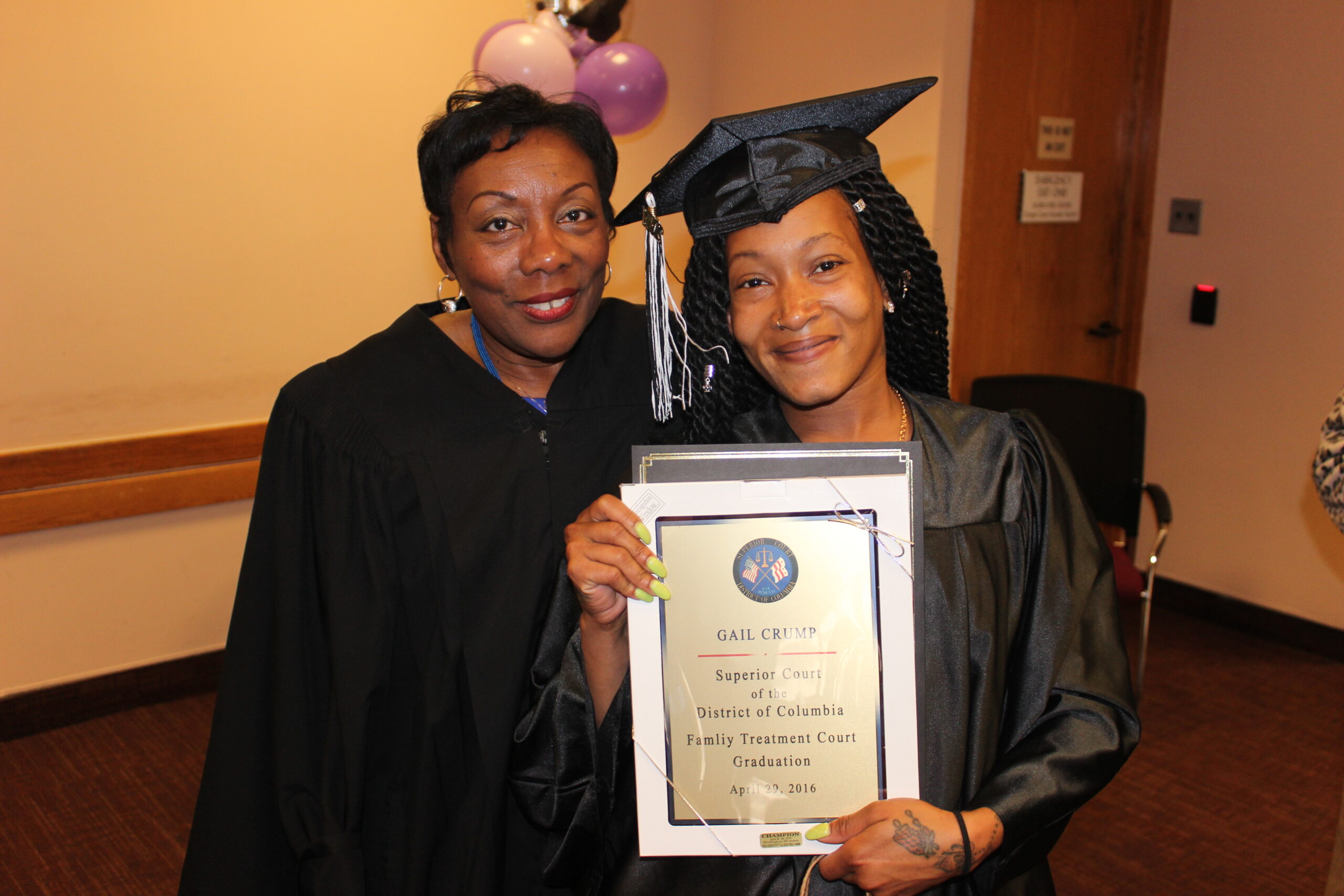)
About Treatment Courts
Treatment courts are considered the most successful justice intervention for people with substance use and mental health disorders.
For three decades, treatment courts have proven that a combination of treatment and compassion can reduce crime and lead people with substance use and/or mental health disorders into lives of stability, health, and recovery.
By uniting public safety and public health, treatment courts prevent fatal overdoses, strengthen families, and make communities safer all while saving taxpayer dollars.

Treatment Court Success
4,000+
Treatment courts in operation
150,000+
Individuals served by treatment courts each year
58%
Reduction in crime
$6,000
Tax dollars saved per participant